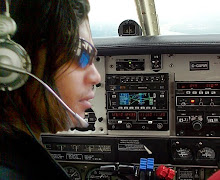



Choose Your First ComputerChoose Your First Computer
1. Make a budget. Think about how much money you are willing to pay for a computer
2.What purpose will it serve. If it is for basic applications like word processing, then look for a cheap model. If you want to play games, you'll need something with a fast processor, lots of RAM, a large hard drive, and good sound and graphics cards
3.Where will it be used. If you need to take it all over the place, you'll need a laptop. If you intend to leave it in the office or at home on the desk, then buy a desktop.
4.Who is going to use it? If it's for an office and you have to share it, you might need one with more memory and Windows 7 Professional or Ubuntu. If you will be the only one using it, and mostly for playing games, then Windows 7 Home Premium or Vista Home Basic will serve you well.
5.Choose an operating system.
Linux (Ubuntu, Debian, Fedora, OpenSuse and Mandriva) is stable, fast and free.
Microsoft Windows (98, XP, Vista, 7) is the most popular platform in general and for gaming.
Mac OS X (Tiger, Leopard, Snow Leopard) is popular for creative endeavours and multimedia.
6.Choose the hardware Decide whether you want a desktop machine, a laptop that you can take with you, or a netbook. A netbook is a smaller version of the laptop but more portable and with fewer built-in devices such as CD and DVD drives.
7.Decide on the amount of memory Decide how much RAM memory you want your computer to have. Many software have a minimum RAM requirement in order to run. So if your software say it requires 2 GB of memory, and your computer has only one GB of memory, it will not run. The more RAM the better, but it will be more expensive. You should at least have 2 GB or more RAM, unless the only thing you are using the computer for is connecting to the internet (in which case you can do with only 1 GB).
8.Research. Scan the Internet, and become more knowledgeable. Compare prices, and whether the computer can be upgraded as needed. Then you are ready to order, either online, or in a computer store.
TIPS
*If you find a computer you like, compare all the prices. You don't want to pay £700 and find the same thing on eBay for £300.
*If you're only doing basic things like word processing, see if you can use a friend's computer, or go to a library.
Selecting and Buying a Computer
 Friday, February 19, 2010
Friday, February 19, 2010
 Gopal Pandey
Gopal Pandey
Subscribe to:
Post Comments (Atom)

0 comments:
Post a Comment